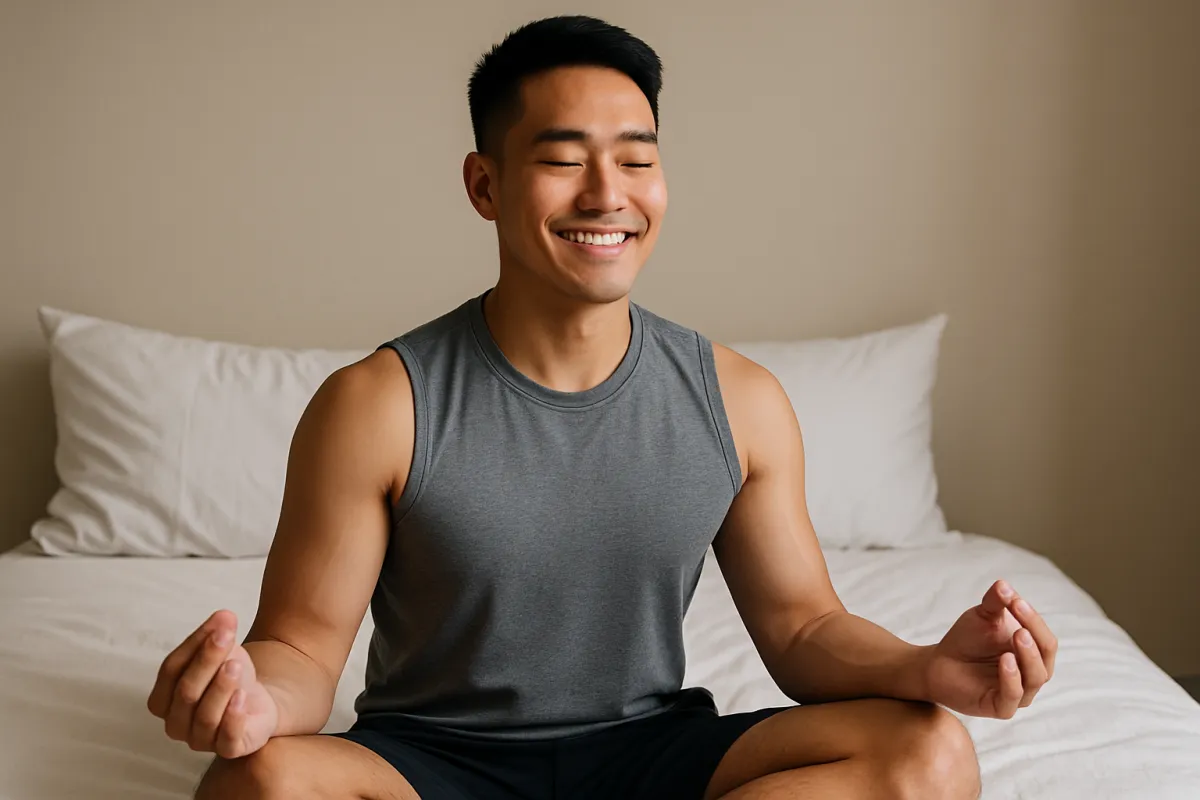
Stronger with Solitude: How Alone Time Fuels Your Fitness and Mental Health
Introduction
There’s a stereotype that gay men are highly social and always fun to be around. In many ways, that stereotype reflects mainstream gay culture. Most gay men have calendars with brunches, gym sessions with friends, happy hours, hookups and community events littered throughout. It seems as if there is an unspoken rule that if you are not out and connected, you are missing out.
Unfortunately, many gay men live by this rule, forgetting that always being '"on" leaves little room to connect with the most important person in your life: yourself.
These days, many of us fear slipping into loneliness or isolation, and for good reason. They can be heavy places to sit in. But solitude is something entirely different. It is a practice, not a punishment, and one that many gay men overlook. When embraced, solitude can unlock a deeper sense of peace and strength than we have ever known.
Why Solitude Matters For Gay Men
Solitude is intentional time alone to be with yourself and your thoughts. It's different than being lonely or isolated since solitude is chosen, loneliness and isolation are not. Loneliness and isolation feel like being left out, but solitude feels like creating space for yourself.
In gay culture, it is easy to feel pressure to look a certain way, act a certain way, and live a certain way in order to avoid the ultimate fear of not belonging. For many men, it already felt impossible to fit in with straight or so-called "normal" people. The last thing they want is to feel pushed out by the very community they hoped would accept them. This pressure makes it easy to forget the most important relationship: the one with yourself.
Spending time alone helps you:
Reset stress levels
Build confidence from within
Improve focus at the gym
Get alignment with what you actually want, not what others expect from you
Let's back this up. Here's what the research says:

The Science of Solitude
Emotional Reset - A study in Personality and Individual Differences found that short periods of solitude reduce negative emotions like stress and anger. For gay men, solitude can ease the stress of navigating work, dating, and body image pressure. That reset can feel like breathing room in a crowded life.
Creativity and Problem-Solving - Research published in The Journal of Experimental Social Psychology shows that solitude increases creative thinking and original idea generation. Often when under pressure, it seems as if the brain just isn't as good at seeing the infinite options and outcomes that are in front of you. A little solitude can help whether that’s figuring out how to break through a fitness plateau or how to approach dating with more confidence.
Identity & Self-Confidence - Studies from the University of Massachusetts Amherst found that chosen alone time helps people develop self-concept clarity. That's another way of saying solitude will help you develop a stable sense of identity in who you are, not who others want you to be. This could be invaluable in a culture that often measures a person's worth by six-packs or social validation. The stronger your self-identity, the less you rely on outside approval.
Fitness & Mental Health Together - Solitude isn’t just mental. Kaplan’s Attention Restoration Theory (1989, and still cited today) shows that time alone in nature restores focus and attention capacity. For lifters and athletes, that translates to sharper workouts and less burnout. For mental health, it means lower risk of depression when solitude is chosen rather than forced.
Practical Ways to Build Solitude Into Your Fitness Journey
You don't need to run off to a cabin for a month to do this. Start small:
Solo workouts: No partner, no playlist, no scrolling between sets. Just you and the weights.
Walks without your phone: Let your thoughts breathe.
Meal prep as meditation: Treat cooking as quiet time rather than a rushed chore.
Weekly Check-Ins With Yourself: Spend 30 minutes journaling about what you actually want from fitness, relationships, or career.
The key is to step away from the noise of daily life and make space to simply be with yourself.
The Bottom Line
Gay men who learn to embrace solitude discover they:
Recover faster emotionally
Train with more focus
Feel more confident in their bodies and decisions
Experience less anxiety about “keeping up” socially
Solitude isn’t about disconnecting from your community. It’s about reconnecting with yourself so you can show up stronger, inside and out.
Studies
Solitude as an Approach to Affective Self-Regulation (Nguyen, Ryan, Deci, 2017)
Alone but not lonely: The concept of positive solitude (Shiovitz-Ezra, 2024)
Self-Concept Clarity and Loneliness among College Students (Pang et al., 2024)
Everyday solitude time both benefits and harms well-being (Weinstein et al., 2023)
Built For You
If you would like a specific plan built to account for you, your life, your obstacles, and your goal, buy a training program. On your onboarding call, we will see you came from this post and take you down a different process to build something specific to you.
To get a program click here: https://b.link/relieftrap
Related Articles
If you liked this post you may like
Fitness for Gay Achievers: How Busy Professionals Can Finally Build a Body They’re Proud Of
Prediabetes in Gay Men: The Hidden Health Risk in Gay Culture No One Talks About
5 Proven Tips for Gay Men Building Muscle in Their 30s and Beyond
Progress Over Perfection: 3 Fitness Lessons for Gay Men Who Want Results
